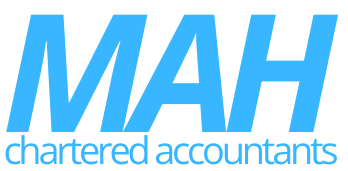
The year 2025 brings a wave of significant tax reforms in the UK, impacting both individuals and businesses. UK Tax Changes 2025 introduces adjustments to capital gains tax, frozen thresholds, employer contributions, and more. Understanding these changes is essential for effective financial planning and compliance. Whether you’re a homeowner, investor, or business owner, here’s a comprehensive breakdown of what lies ahead and how it may affect your finances.
Personal Tax Changes
Increased Capital Gains Tax
One of the most notable changes is in the realm of Capital Gains Tax (CGT). Starting from April 2025, the rates will rise significantly: basic rate taxpayers will see their CGT increase from 10% to 18%, while higher and additional rate taxpayers will face an increase from 20% to 24%. This shift means that anyone selling assets—be it stocks, property, or other valuables—should be prepared for a larger tax bill. Keeping meticulous records of gains and losses will become even more essential.
Frozen Thresholds
The government has decided to freeze several key tax thresholds, including the personal allowance at £12,570 and the National Insurance threshold. This freeze means that as inflation rises, more people may find themselves pushed into higher tax brackets without any corresponding increase in income. The main Inheritance Tax (IHT) threshold will remain at £325,000 until 2030, which could lead to unexpected tax liabilities for those inheriting property or wealth.
Council Tax Increases
From April 2025, council tax will see an increase of up to 5%, which could add approximately £109 to the average band D council tax bill in England. This rise is part of ongoing efforts by local authorities to manage budget constraints and fund essential services.
Business Tax Changes
Corporation Tax Stability
For businesses, the Corporation Tax rate will remain unchanged at 25% for profits exceeding £250,000. However, companies with profits below £50,000 will benefit from a reduced rate of 19%. This structure provides a gradual increase in effective tax rates for mid-sized companies.
Changes in Company Size Thresholds
New regulations coming into effect will adjust company size thresholds, allowing many businesses to qualify as micro-entities. This change means around 113,000 companies will be exempt from statutory audits and can take advantage of simpler accounting requirements. These adjustments aim to reduce the regulatory burden on smaller businesses, allowing them to focus more on growth and innovation.
Significant Reforms
Abolition of the Non-Dom Regime
Perhaps one of the most transformative changes is the end of the non-domiciled taxpayer regime. From April 2025, all UK residents will be taxed on their worldwide income and gains as they arise. This shift abolishes the previous remittance basis that allowed non-doms to limit their tax liabilities on foreign income. New arrivals to the UK can still enjoy a four-year relief period before this rule applies fully.
Increased Employer National Insurance Contributions
Employers should prepare for an increase in National Insurance contributions from 13.8% to 15% starting April 2025. Additionally, the threshold for paying these contributions will decrease from £9,100 per year to £5,000. These changes could significantly affect payroll budgets and overall business costs.
VAT on Private School Fees
From January 2025, private school fees will be subject to VAT, marking a significant shift in how education is funded in the UK. This change aims to level the playing field between private and state schools but may also lead to increased fees for parents.
Conclusion
As we approach the changes outlined in UK Tax Changes 2025, it is vital for both individuals and businesses to remain informed and proactive. With adjustments affecting everything from capital gains tax to National Insurance contributions, understanding these tax reforms is essential for effective financial planning. Engaging with financial advisors or tax professionals can provide tailored guidance suited to your unique circumstances, helping you navigate this evolving landscape and prepare for any increased liabilities. Staying ahead of these changes will empower you to make informed decisions that align with your financial goals in 2025 and beyond.
Get expert advice from MAH Chartered Accountants to optimize your tax strategy and navigate UK tax thresholds with ease.








